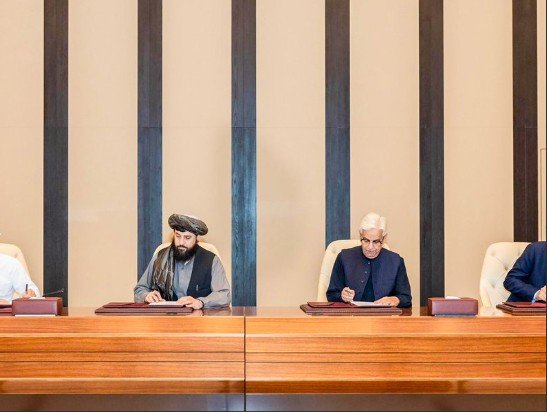Bangladesh’s Yunus Government Accused of Using Anti-India Sentiment Amid Domestic Crisis
Interim government shifts foreign policy toward Pakistan, blames India for internal unrest while facing law and order breakdown
Dhaka, Nov 19: Since the July 2024 uprising that ended Sheikh Hasina’s 15 year tenure, Bangladesh’s political landscape has undergone a dramatic transformation. With anti-Hasina forces in power, the country’s foreign policy has pivoted sharply, and India, once a trusted ally, is now viewed as an adversary by the interim government led by Chief Advisor Muhammad Yunus.
During Hasina’s tenure, anti-India sentiment was largely driven by radical Islamist groups and Pakistan apologists, even as Dhaka strengthened ties with New Delhi on cultural diplomacy, border security, water-sharing, and connectivity projects. Her government also handled domestic terrorism decisively and concluded landmark agreements, including the Land Boundary Agreement and maritime boundary resolution with India.
Following Hasina’s ouster, Yunus’ government recalibrated Bangladesh’s foreign policy, moving closer to Pakistan while keeping a cold distance from India. Yunus has repeatedly made provocative statements against New Delhi, including claiming Bangladesh as the sole guardian of the Bay of Bengal for India’s “landlocked” northeast states, and blaming India for student protests that led to Hasina’s removal.
Meanwhile, the country has descended into a law-and-order crisis. Violence of all kinds gender, communal, ethnic, and political — has surged, with attacks on Awami League offices, vandalism of historic murals, and the demolition of Sheikh Mujibur Rahman’s private residence at 32 Dhanmondi drawing widespread criticism.
Instead of addressing domestic instability, the interim government has consistently blamed India, alleging that New Delhi is aiding Hasina in destabilising Bangladesh. Dhaka has even protested against India for allowing Hasina to give interviews, despite India clarifying that her speeches are personal and not official policy.
Observers note that the deterioration in bilateral ties is not due to India turning its back on Bangladesh but rather the interim government weaponizing anti-India sentiment to deflect criticism of its inefficiency and mismanagement. Historical revisionism, including attempts to downplay India’s role in the 1971 Liberation War, has further strained relations.




